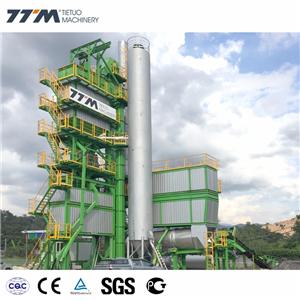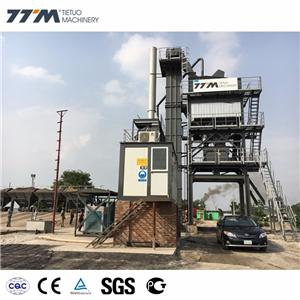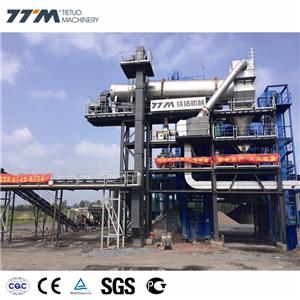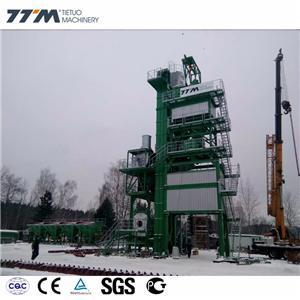High quality asphalt hot recycling mixing plants Promotions Factory
asphalt hot recycling mixing plants
High quality recycling mixng plant
The focus of municipal solid waste management should be on the household level. Lobby groups are promoting unsustainable alternatives. Ministry of Housing and Urban Affairs shall cease funding for parties under the "Smart City" mandate.
The first rule of waste management around the world is that households must isolate waste before it can be collected from the door.The same provision is made in the solid waste Management regulations 2016. If we do not mix wet waste with dry waste, the burden of solid waste management on our municipalities will be greatly reduced. Wet waste can be composted in situ; dry recyclable waste can be recycled and the rest can be safely disposed of. Our city will be really cleaned up, not just looking clean.
Some municipalities and pro bono individuals, most of them women, are trying to inculcate city dwellers with the habit of not mixing different types of waste. But three forces have created disturbing resistance to the movement, secretly misleading people into thinking that there is a "smart" way to deal with mixed waste, which makes apartheid unnecessary.
First of all, the good news! 20 of the 50 small cities in Tamil Nadu are segregated at 100 per cent, while the remaining 80-90 per cent are segregated. However, the capital of Chennai lags behind, isolating only 50% of the rubbish.Collect wet waste every day and dry waste once a week. This is important because not mixing transport and disposal of dry and wet waste encourages citizens to keep their waste unmixed. Wet waste accounts for more than half of the total waste and is used for decentralized composting or biomethanization. In one fell swoop, it halved the need to transport waste over long distances.
The first rule of waste management around the world is that households must separate their waste before they can collect it from their doorstep. This is stipulated in the 2016 regulations on the Management of solid waste in China. If we do not mix wet waste with dry waste, the burden of solid waste management on our municipalities will be greatly reduced.Wet waste can be composted in situ; dry recyclable waste can be recycled and the rest can be safely disposed of. Our city will be really cleaned up, not just to look clean.
asphalt hot recycling mixing plant Promotions
Some municipalities and pro bono individuals, most of them women, are instilling in city dwellers the good habit of not mixing garbage. However, three forces have created disturbing obstacles to the movement, secretly misleading people into thinking that there is a "smart" way to deal with mixed waste, thus making apartheid unnecessary.
First of all, there is good news. 20 of the 50 smaller cities in Tamil Nadu have achieved 100 per cent apartheid, while the rest have achieved 80 to 90 per cent apartheid.However, (Chennai), the Indian capital, lags behind, isolating only 50 per cent of the rubbish. Collect wet waste every day and dry waste once a week. This is very important because not mixing transport and disposal of dry and wet waste encourages citizens to keep their waste unmixed. Wet waste accounts for more than half of the total waste and is used for decentralized composting or biomethanization. In one fell swoop, it halved the need to transport waste over long distances.
A demolition and concrete expert in Perth is breaking ground in Western Australia to recycle gravel for concrete sidewalks, house slabs and intersections.
But he encountered mistrust from state and local governments that lacked knowledge of his products, with the exception of a pioneer in the suburbs of Perth.
In the past 20 years, the "capital recovery" (Capital Recycling) project of (Ray Gullotto) has been reusing construction waste as the road foundation. But since January, the company has also recycled cleaner concrete into aggregates for foundations, roads, bridges and high-rise buildings.
asphalt hot recycling mixing plants Factory
Australia produces more than 18 million tons of ClearD waste, including asphalt, bricks, concrete, gypsum board, sand and gravel, but only 21 per cent of it is recycled. The rest were landfill.
In Western Australia alone, the construction and demolition industry produces 68000 semi-trailers each year, of which nearly 46500 semi-dump trucks end up in landfills, equivalent to 1 million cubic metres of airspace.
Ray Guroto wants to change that.
On any given day, large amounts of debris, gravel and construction waste enter the McLaren Road facility and are dumped in one of the two repositories, according to Pritti.
The materials are then crushed, classified and of all sizes, from sand to 14mm stone, and then sent to a batching plant in Bayswater for packaging and preparation for construction.
Mr Guroto said he had met opposition from government departments, which were cautious about buying recycled aggregates, saying they were of poor quality.




